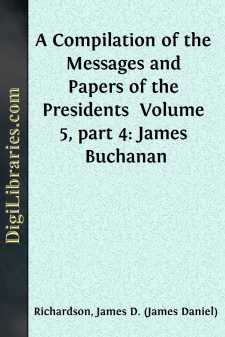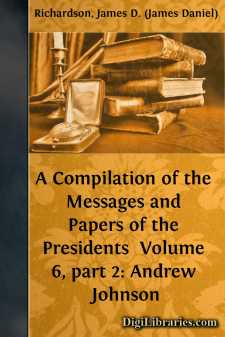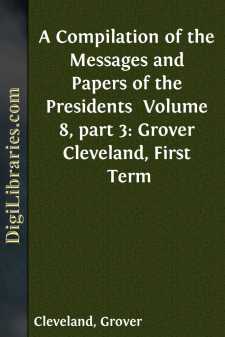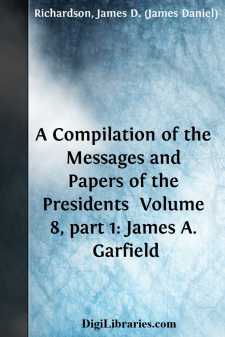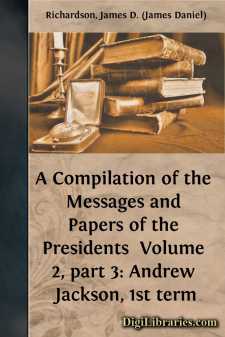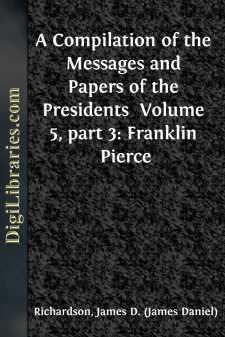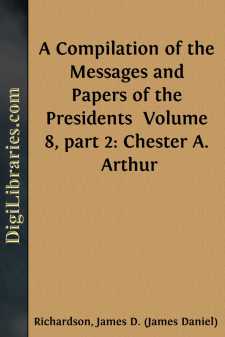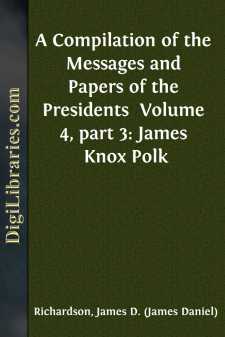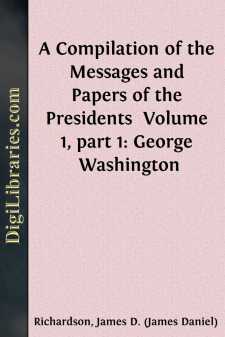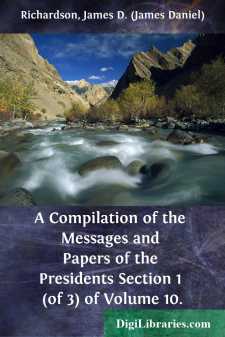History
- Africa 30
- Americas (North Central South West Indies) 50
- Ancient 68
- Asia 58
- Australia & New Zealand 8
- Canada 41
- Caribbean & West Indies 1
- Civilization 20
- Eastern Europe 12
- Europe 310
- Expeditions & Discoveries 60
- General 77
- Historical Geography 1
- Jewish 9
- Latin America 3
- Medieval 8
- Middle East 13
- Military 248
- Revolutionary 8
- Study & Teaching 5
- United States 353
- Western Europe 56
- World 13
History Books
Sort by:
James Buchanan James Buchanan was born near Mercersburg, Pa., April 23, 1791. His father, James Buchanan, a Scotch-Irish farmer, came from the county of Donegal, Ireland, in 1783. His mother was Elizabeth Speer. The future President was educated at a school in Mercersburg and at Dickinson College, Pennsylvania, where he was graduated in 1809. Began to practice law in Lancaster in 1812. His first public...
more...
Andrew Johnson Andrew Johnson was born in Raleigh, N.C., December 29, 1808. His parents were very poor. When he was 4 years old his father died of injuries received in rescuing a person from drowning. At the age of 10 years Andrew was apprenticed to a tailor. His early education was almost entirely neglected, and, notwithstanding his natural craving to learn, he never spent a day in school. Was taught...
more...
by:
Grover Cleveland
Grover Cleveland Grover Cleveland was born in Caldwell, Essex County, N.J., March 18, 1837. On the paternal side he is of English origin. Moses Cleveland emigrated from Ipswich, County of Suffolk, England, in 1635, and settled at Woburn, Mass., where he died in 1701. His descendant William Cleveland was a silversmith and watchmaker at Norwich, Conn. Richard Falley Cleveland, son of the latter named,...
more...
VOLUME VIII 1897 Prefatory Note This volume comprises the Garfield-Arthur term of four years and the first term of Cleveland. The period covered is from March 4, 1881, to March 4, 1889. The death of President Garfield at the hand of an assassin early in his Administration created a vacancy in the office of the Chief Executive, and for the fourth time in our history the Vice-President succeeded to that...
more...
ANDREW JACKSON Andrew Jackson was born in the Waxhaw Settlement, North or South Carolina, on the 15th of March, 1767. He was a son of Andrew Jackson, an Irishman, who emigrated to America in 1765 and died in 1767. The name of his mother was Elizabeth Hutchinson. There is little definite information about the schools that he attended. According to Parton, "He learned to read, to write, and cast...
more...
INAUGURAL ADDRESS. My Countrymen: It is a relief to feel that no heart but my own can know the personal regret and bitter sorrow over which I have been borne to a position so suitable for others rather than desirable for myself. The circumstances under which I have been called for a limited period to preside over the destinies of the Republic fill me with a profound sense of responsibility, but with...
more...
Chester A. Arthur Chester Alan Arthur was born in Fairfield, Franklin County, Vt., October 5, 1830. He was the eldest son of Rev. William Arthur and Malvina Stone. His father, a Baptist minister, was born in Ireland and emigrated to the United States. Chester prepared for college at Union Village in Greenwich and at Schenectady, N.Y., and in 1845 entered the sophomore class of Union College. While in...
more...
James K. Polk JAMES KNOX POLK was born in Mecklenburg County, N.C., November 2, 1795. He was a son of Samuel Polk, a farmer, whose father, Ezekiel, and his brother, Colonel Thomas Polk, one of the signers of the Mecklenburg Declaration of Independence, were sons of Robert Polk (or Pollock), who was born in Ireland and emigrated to America. His mother was Jane, daughter of James Knox, a resident of...
more...
Declaration of Independence NOTE.—The words "Declaration of Independence" do not appear on the original.IN CONGRESS, JULY 4, 1776. The unanimous Declaration of the thirteen united States of America, When in the Course of human events, it becomes necessary for one people to dissolve the political bands which have connected them with another, and to assume among the powers of the earth, the...
more...
SPECIAL MESSAGES, ETC. SATURDAY, August 22, 1789. The President of the United States came into the Senate Chamber, attended by General Knox, and laid before the Senate the following state of facts, with the questions thereto annexed, for their advice and consent: "To conciliate the powerful tribes of Indians in the southern district, amounting probably to 14,000 fighting men, and to attach them...
more...


